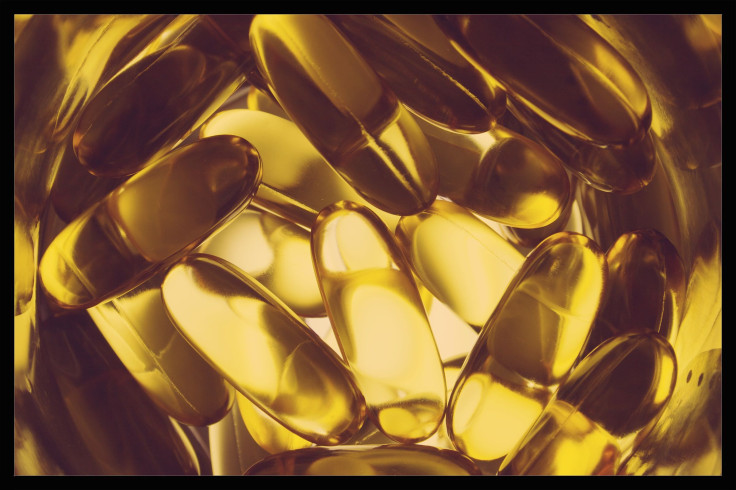Losing Weight With Supplements: Fish Oil May Produce Microbes That 'Protect' Against Weight Gain And Inflammation

Fish oil has been shown to benefit the human body, from improved cognitive abilities to the heart’s pumping efficiency — but it may be fish oil’s ability to alter an individual’s gut bacteria that makes it an ideal weight loss treatment. Researchers from the University of Gothenburg in Sweden compared fish oil’s effect on the gut to lard, another type of dietary fat. Their findings, published in the journal Cell Metabolism, reveal the impact, for better or worse, fish oil and lard respectively have on gut bacteria.
"We wanted to determine whether gut microbes directly contribute to the metabolic differences associated with diets rich in healthy and unhealthy fats," the study’s co-author Dr. Robert Caesar, a researcher at the University of Gothenburg, said in a press release. "Our goal is to identify interventions for optimizing metabolic health in humans." So Caesar and his colleagues fed mice either a diet of lard or fish oil for 11 weeks, while monitoring signs of metabolism changes.
They found lard promoted the growth of bacteria Bilophila, which is linked to gut inflammation. Fish oil, on the other hand, increased the amount of bacteria Akkermansia muciniphila, which reduces weight gain and improves blood sugar metabolism.
Next, researchers transplanted fecal matter (known as a “fecal transplant”) from mice on a lard diet into mice on a fish diet and vice-versa. After they transferred all of the fecal matter containing the mice’s diet-affected gut microbes, researchers were able to see the power of microbes in action. Apparently, mice that were on a lard diet but received a fish oil fecal transplant into their gut were better protected against weight gain and inflammation. But mice that were on a fish oil diet and received lard-containing fecal matter experienced inflammation and obesity. The fecal transplants confirmed that gut microbiome can cause certain health problems and help individuals recover from them depending upon the type of diet feeding the gut.
Both fish oil and lard are considered fat, but they’re not created equal. Lard is a fat that comes from pigs, commonly used in baking and as a spread for breads. According to the American Heart Association, it contains 40 percent saturated fat, which can be harmful to the heart as it increases blood pressure, “bad” LDL cholesterol, and fatty build-up in the arteries.
Fish oil is quite the opposite. Researchers at Harvard Medical School found that fish oil supplements are an easy way to protect the heart, ease inflammation, and even improve mental health and lengthen a person’s lifespan. Omega-3 fatty acid deficiencies, fish oil’s main ingredient, have been linked to heart disease, certain cancers, mental health disorders, and arthritis. Despite all of fish oil’s benefits, researchers still didn’t expect it to change the gut microbiome community into a powerful weight loss and anti-inflammatory treatment.
"We were surprised that the lard and the fish oil diet, despite having the same energy content and the same amount of dietary fiber — which is the primary energy source for the gut bacteria — resulted in fundamentally different gut microbiota communities," Caesar said. "The microbiota per se had such large effects on health."
Discovering that the bacteria A. muciniphila can be enhanced in the body has led the research team to study its potential in weight management. Their next step will be determining if the bacteria can be turned into a supplement and combined with a specific diet to “optimize health outcomes.”
Source: Backhed F, Caesar R, Tremaroli V, Kovatcheva-Datchary P, and Cani PD. Crosstalk between Gut Microbiota and Dietary Lipids Aggravates WAT Inflammation through TLR Signaling. Cell Metabolism. 2015.



























